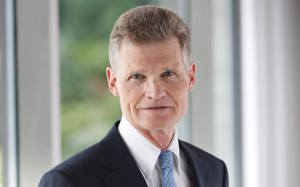The World within Our Reach
Discovery, ingenuity, experimentation, and investigation are essential to the human condition.
Our desire to continually push the frontiers of knowledge, leaving footprints on seemingly unimaginable places, is as much a product of an inner drive to advance humankind as it is innate curiosity. We could call it a necessary obsession. Inventiveness and enterprise, and our yearning to explore and solve life’s greatest questions, is a mantle which is passed through to every generation.
Some discoveries, like the Oxford-AstraZeneca SARS-CoV-2 vaccine, are born of unexpected emergencies which require original thought. Without the quick-thinking innovation behind the vaccine, we risked an insular society perpetually held prisoner to a virus we neither knew nor could control. Other discoveries are slow burners, less urgent but equally complicated, made possible through a series of incremental steps forward – though their potentially world-changing implications makes them just as significant.
Across all innovation undertaken in the UK, we’re pushed into new and unfamiliar territory, which is one of the greatest joys of furthering science and technology. With every fragment of new knowledge, we improve our comprehension of the world around us and open new avenues to better our collective society.
That desire to advance societal outcomes is no better displayed than within the Oxford-Cambridge Arc. The common thread that binds together the knowledge economy that we have created is a propensity to collaborate. This is deeply embedded in the culture of the region and is replicated in long-term public and private sector investment, the creation of commercial partnerships, universities as educators and incubators of talent, and the cross-fertilisation within science campuses and innovation districts which act as catalysts of the scientific endeavour. By sharing new ideas and testing preconceptions, we continually challenge the status quo in ways that agitate and accelerate the creative process.
Clusters in Oxford and Cambridge, and their adjacencies with the centre of the Arc, collectively form a fertile and dynamic ecosystem of innovation. Thousands of pioneering enterprises, from start-ups and academic spinouts to listed companies and globally recognised companies, have their roots in the Arc precisely because of its rich and irreplicable culture. In life sciences alone, we need only look at companies like Vaccitech and Oxford Nanopore as examples of where this region’s unmatched knowledge economy and its unique assortment of business, academic institutions, science parks, government research organisations and industry networks have made a profound impact on our social prosperity.
The Arc has all the distinctive characteristics to be a leading region of world-class research and development.
In some respects, it already is, attracting investment from other high-performing clusters in the U.S., Europe, and Asia, though we know that further investment into its capital stock presents a remarkable opportunity to ‘supercharge’ its potential. This value-add isn’t just measurable in economic terms alone: in the right combination, improvements to knowledge transfer, skills, sustainability, and the connectivity of the Arc will spill over into societal returns which far outweigh the impact monetarily.
Through commitment, of time, and of resource, and a determination to support and empower the companies breaking new ground in the region, the Arc can consolidate and advance its position as the source of world-leading scientific and technological enterprise that once appeared impossible. The world within our reach is ultimately one which we do not yet know, but it’s guaranteed to be shaped by the activity within the Oxford-Cambridge Arc.


